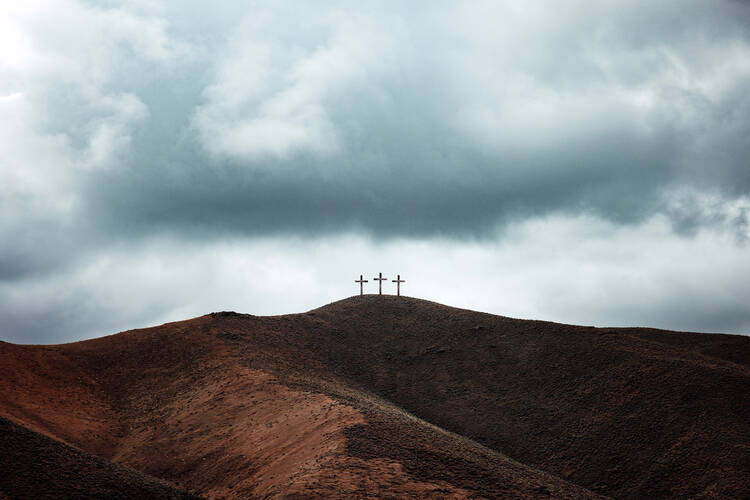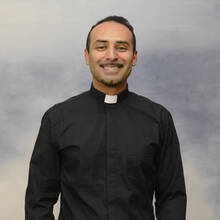Jesus is the center that continues to hold
What is the right relationship between the three persons of the Trinity? It remains a mystery. Even so, this Sunday’s readings offer insights that can help us encounter the mystery and give it relevance.
And behold, I am with you always, until the end of the age. (Mt 28:20)
Scripture speaks of the Spirit as both wind and breath; what are your images for the Spirit?
What creative ability would you like to share with the Father?
How can the Son, Jesus, play a central role in your life?
Our readings today emphasize similarities humans share with God, especially through the metaphors of “breath” and “spirit.” These similarities also lead us to the central role Christ plays in the nature of our triune faith and in our relationship with God. Christians can often approach ideas about the Trinity as complicated dogmatic issues, for example, the filioque controversy. But trinitarian thought can also help believers renew their understanding of the mysterious way God holds together the divine and human elements of the church anchored in the person of Christ.
On the Solemnity of the Most Holy Trinity, the psalm speaks of God’s creative and human-like use of power and ability. “By the word of the LORD the heavens were made; by the breath of his mouth all their host” (Ps 33:6). God speaks and creation takes place. God breathes and a heavenly army of stars comes to life in the night sky, an array that biblical writers call the “heavenly host.” This psalm brings to life the night sky lit with divine initiative. It is a thoroughly positive image of a living earth charged with divine energy. The psalmist is conjuring a delightful image of the universe. It recalls for the attentive reader the opening chapter of Genesis when God merely speaks and the earth’s creation takes place.
In the second chapter of Genesis, God shapes a person out of the earth who, with the gift of God’s breath, becomes a living being. “The LORD God blew into his nostrils the breath of life, and the man became a living being” (Gen 2:7). The image is rich, and captures the sense of divine breath as “the spirit of God.” In the Gospel reading of Pentecost Sunday last week, Jesus made God’s creative act his own when he shared the Spirit through the act of breathing. “He breathed on them and said to them, ‘Receive the Holy Spirit’” (Jn 20:22). In this scene, the Trinity is present: the Father, who is implicit in the Son’s action, and the Spirit, who is made present in the Son’s breath.
All this mysterious imagery of the Trinity, sparked by today’s psalm, is reinforced in the readings for this Sunday through the signs of God’s activity. “Ask now of the days of old, before your time, ever since God created humankind on earth; did anything so great ever happen before?” (Dt 4:32). The saving history of God, which was just beginning in this Sunday’s first reading, culminates in the person and action of Christ recorded in this Sunday’s Gospel passage. “All power in heaven and on earth has been given to me” (Mt 28:18). “Go out,” Jesus orders his disciples, “in the name of the Father, and of the Son, and of the holy Spirit” (Mt 28:19).
Not only does Matthew highlight the trinitarian nature of divinity, but he places Jesus at the center of it. Jesus, as the center that holds it all together, becomes the anchor for the mission of the first disciples and for us today who look for new ways to navigate a changing world. With his presence, the disciples can find comfort and support wherever they bring the good news: “And behold, I am with you always, until the end” (Mt 28:20).








